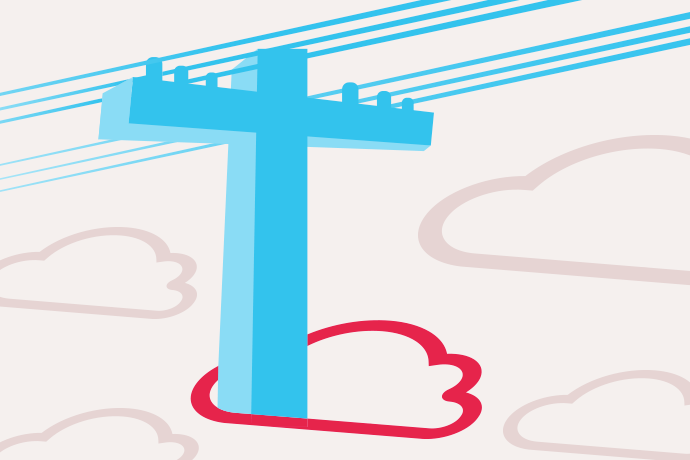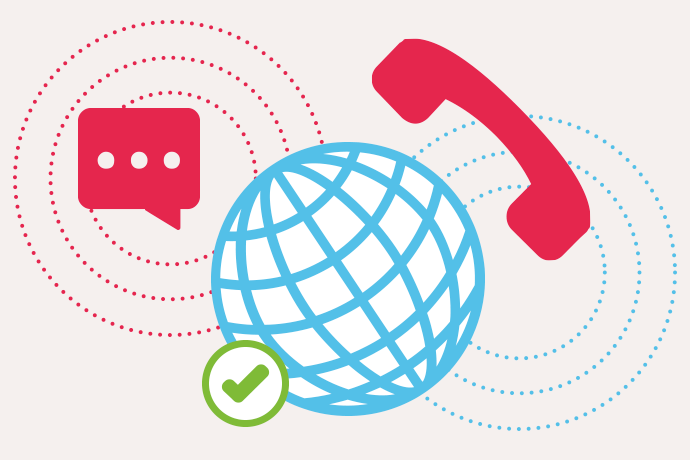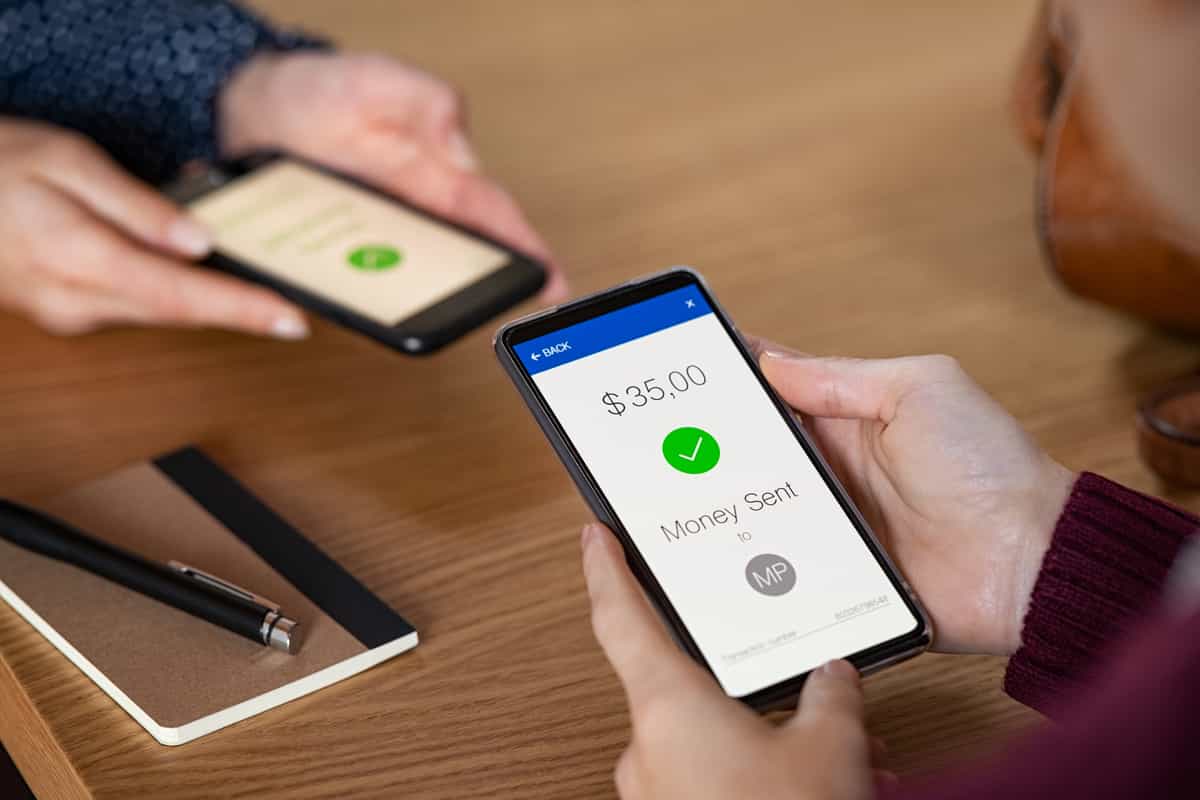Cart Total
$0.00
-
Your shopping cart is empty
Loading

Hello! Log in Your Account
New customer? Start here


|
5 min read
Contents
Quick Summary
VoIP won't work without the internet, but that doesn't mean you need a wired broadband connection. A supplemental mobile cellular data network (4G, 5G, LTE) can make VoIP calls possible even if broadband is unavailable.
When companies are moving to a VoIP phone system for the very first time, one of the most common concerns is whether the system will work without the Internet. No one wants to be stranded when their Internet connection is offline, unable to connect with colleagues and customers.
In this article, we’ll talk through this concern and what can be done to mitigate it.
Your VoIP service won’t work without an active Internet connection.
When you make a VoIP call, you are making that call over the Internet rather than over the Public Switched Telephone Network (PSTN). With PTSN winding down in 2027, this opens the door to much-improved functionality but does require an Internet connection.
This doesn’t mean that you need a wired broadband connection though. VoIP apps (aka softphones) make it possible to make and take business calls from wherever you are using WiFi or mobile data whilst roaming.
You might even decide to set up an LTE network at home or at the office to act as a redundant backup in the event of losing your main connection. Many companies do this as a failover measure and it’s an affordable and useful backup to have on hand, especially when so much of modern business relies on an active Internet connection.
Be proactive and have the right systems in place, and you’ll never find yourself disconnected from your colleagues and customers.
Building on the above, some companies choose to go with a managed service provider (MSP) that offers a combination of broadband and VoIP services. These companies aim to save you the work of sourcing and combining the various components yourself for a price.
But which approach is better?
A managed service provider can be helpful if you’re looking to consolidate your vendors and are trying to build deeper relationships with fewer suppliers.
Alternatively, you might have more financial capital available than time, in which case it makes sense to pay the higher price of using a combined service in exchange for the time-save of not having to hunt for multiple services.
There’s also the value-add of this third-party managing these services and systems for you, meaning you never have to touch them.
Since a managed service provider is reselling other providers’ VoIP and broadband services, the additional markup means that prices are going to be higher.
Plus, by shifting responsibility for these systems to that third-party, you’re leaving business-critical functions in the hands of someone with less vested interest than your business’ staff.
In the event of a crisis, this might not be a good thing. It pays to have a responsible party from your own business who is knowledgeable enough to make fixes or changes over the weekend, for example.
The alternative might be to write off any weekend business until your MSP returns to the office on Monday morning, works through their queue of messages and tickets until they come to yours, and then deals with it.
In this sense, the costs of using an MSP could run much higher than you’d think.
We always advise that businesses work with specialist professionals when they can. That means a separate Internet Service Provider (ISP) and VoIP provider.
When you choose well, your providers will offer dedicated support, a wealth of experience, and a real passion for what they do. We believe it’s these factors that deliver the best results over the long term.
However, if the pros discussed above apply to you, then there’s no harm in using an MSP. When the value-add on offer makes sense for you and the time-save is significant, the premium price you’ll pay becomes acceptable.
While you need an active Internet connection for your VoIP phone system to run, you can use a traditional broadband connection, the mobile network on your phone, or an LTE network that takes over when your main connection is down.
Managed service providers might offer combined VoIP and broadband services. They’ll charge more than if you were to find great deals for each service separately, but they’ll add in value of their own.
Most businesses will do best sourcing their broadband and VoIP services separately, though, and using a platform like ours to power HD quality voice calls, granular call management options and more for an affordable price.


Explore how Skype's end-of-life announcement presents an opportunity for small businesses to upgrade their Skype number to a VoIP phone system.
Posted March 10 2025 | 6 min

Everything you need to consider when moving offices, from hardware to call quality.
Posted January 16 2025 | 6 min

Corded headsets vs wireless headsets? Learn about the key considerations when purchasing a VoIP headset for your VoIP phone system and softphone apps.
Revised December 3 2024 | 9 min

VoIP is incredibly well suited to being the phone system for businesses of all sizes. Large businesses in particular can benefit from great scalability, bulk-deployment options and more.
Revised August 21 2024 | 8 min

Examining the differences between VoIP and PSTN communications solutions and VoIP benefits.
Posted July 16 2024 | 5 min

Get your business up to speed before the PSTN and ISDN switch off in 2027. Discover what digital VoIP technologies will mean for business landlines in the future.
Revised July 15 2024 | 6 min

With the upcoming switch from PSTN to VoIP, we look at what processes other countries have taken when they decided to migrate their own copper line networks.
Posted August 1 2023 | 6 min

VoIP apps or VoIP desk phones, which is better and why? We discuss how VoIP desk phones could be obsolete with the availability of greater and more powerful VoIP apps .
Revised November 2 2022 | 7 min

Cloud VoIP phone systems offer key advantages for businesses. Here are 13 of VoIP's key benefits that have helped to drive the adoption of business VoIP.
Revised May 10 2022 | 12 min

How cost-effective is VoIP? Is VoIP secure? How fast does my Internet need to be? We answer these questions and more.
Posted January 11 2022 | 5 min

Offer great customer service, but do so efficiently. Automate aspects of your phone system and provide self-service information to free staff resources.
Posted September 24 2021 | 4 min

Call recording is a feature of good VoIP phone systems that allows customers to record their business calls, then playback and download them.
Posted September 17 2021 | 6 min

Large corporations have requirements that surpass the capabilities of most phone systems. With Yay.com build your ideal business phone system effortlessly.
Revised August 25 2021 | 5 min

A good business phone system will help you run day-to-day operations more efficiently and effectively. Here are 5 ways yours can improve customer satisfaction.
Posted August 19 2021 | 4 min

Features like call parking and shortcodes can boost the efficiency of your business phone system, saving your teams time.
Posted August 18 2021 | 6 min

Learn what VoIP 'QoS' or Quality of Service is and why your business network needs it configured for the best VoIP experience.
Posted March 9 2021 | 3 min

With Yay.com's free VoIP trial you can try business VoIP for free for fourteen days - no credit card required. Enjoy all of our powerful business phone system features at no cost.
Posted December 3 2020 | 4 min

Business VoIP makes it possible to work from anywhere. We'll get you up and running for working from home, no matter whether you prefer VoIP desk phones or VoIP apps.
Posted November 12 2020 | 3 min